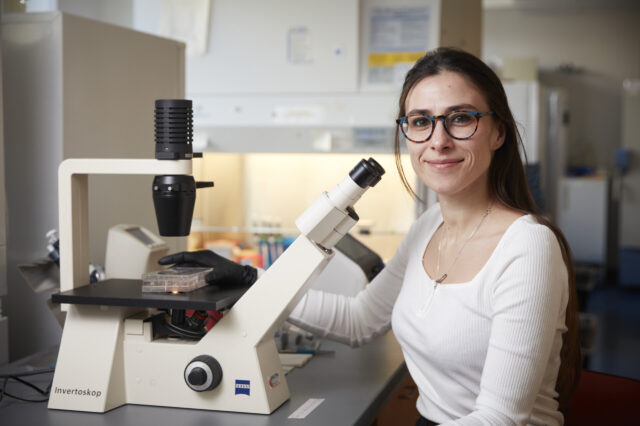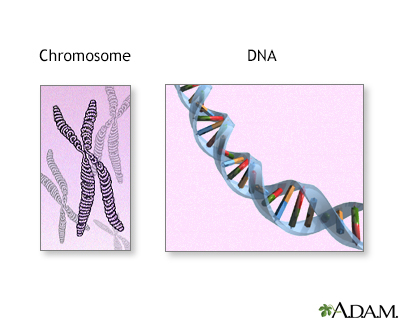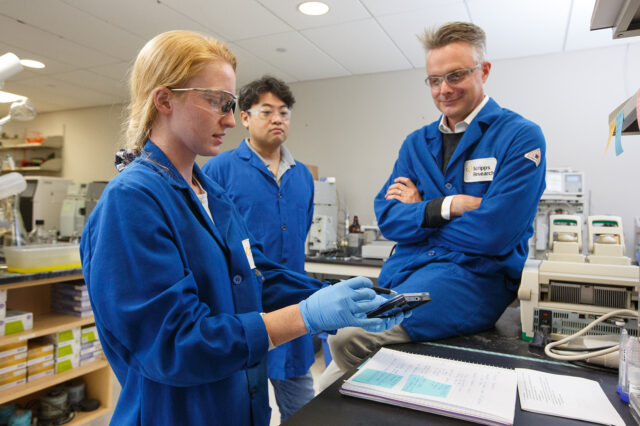Definition
Chromosomes are structures found in the center (nucleus) of cells that carry long pieces of DNA. DNA is the material that holds genes. It is the building block of the human body.
Chromosomes also contain proteins that help DNA exist in the proper form.
Information
Chromosomes come in pairs. Normally, each cell in the human body has 23 pairs of chromosomes (46 total chromosomes). Half come from the mother; the other half come from the father.
Two of the chromosomes (the X and the Y chromosome) determine your sex as male or female when you are born. They are called sex chromosomes:
- Females have 2 X chromosomes.
- Males have 1 X and 1 Y chromosome.
The mother gives an X chromosome to the child. The father may contribute an X or a Y. The chromosome from the father determines if the baby is born as male or female.
The remaining chromosomes are called autosomal chromosomes. They are known as chromosome pairs 1 through 22.
References
Perle MA, Stein CK. Applications of cytogenetics in modern pathology.In: McPherson RA, Pincus MR, eds. Henry's Clinical Diagnosis and Management by Laboratory Methods. 24th ed. Philadelphia, PA: Elsevier; 2022:chap 71.
Taber's Cyclopedic Medical Dictionary. 24th ed. F.A. Davis Company; 2021. www.tabers.com/tabersonline. Accessed April 29, 2021.



